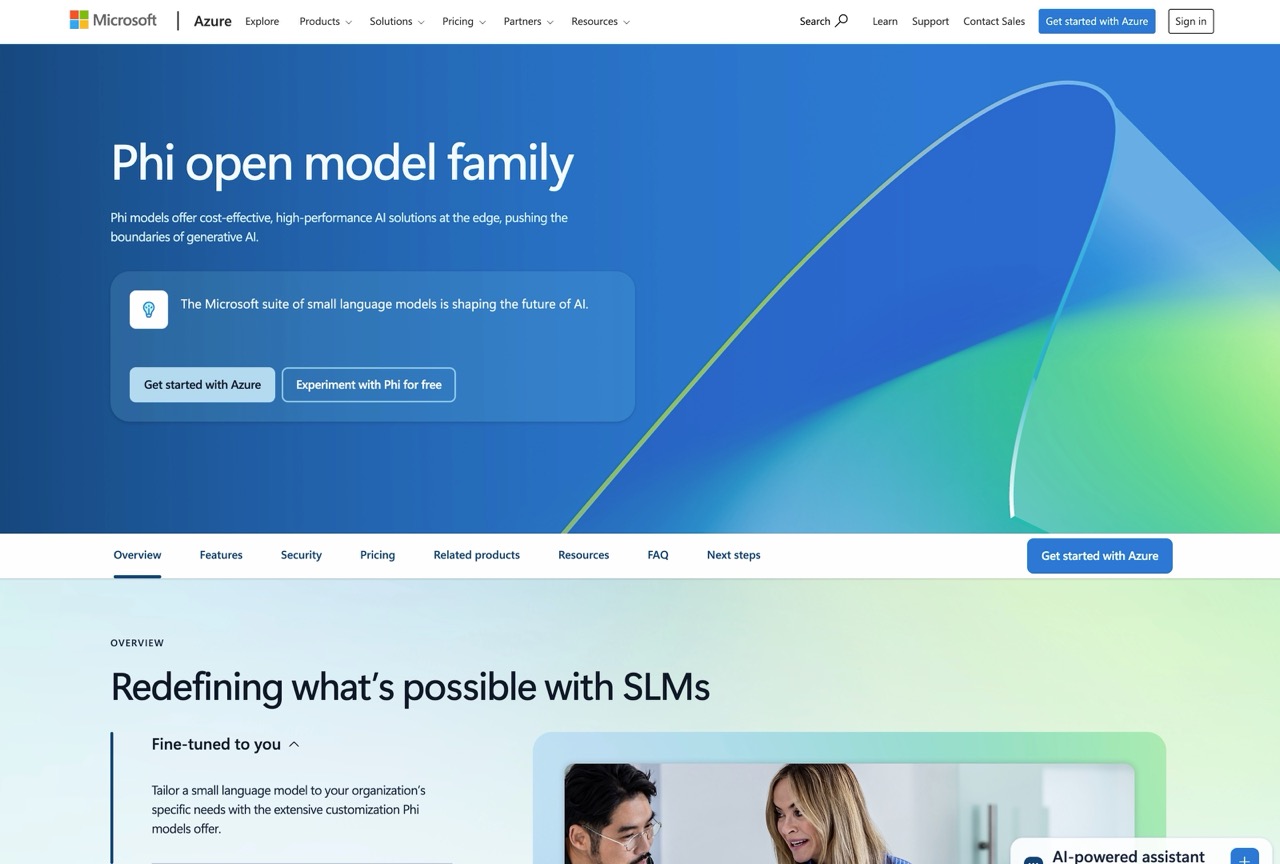What is
Phi Open Models
?
Phi models offer cost-effective, high-performance AI solutions at the edge, pushing the boundaries of generative AI. These small language models are designed for production environments with safety-focused development and multilingual support for over 20 languages. The models range from Phi-1 to the latest Phi-4-multimodal version, all available under the MIT License.
Key Features
- Flexible local deployment
- Ultra-low latency
- Multimodal capabilities
- Cost-efficient for resource-constrained tasks
- Customizable with domain-specific fine-tuning
- Supports over 20 languages
- Open source (MIT License)
Pricing
- Free access through Azure AI Foundry Models, Hugging Face, and Ollama
- Pay-as-you-go Model as a Service (MaaS) option available
Pros:
- Small model size with high performance
- Free and open source
- Multiple deployment options (cloud, edge, on-device)
- Safety-focused development
- Multilingual support
Cons:
- Small model size with high performance
- Free and open source
- Multiple deployment options (cloud, edge, on-device)
- Safety-focused development
- Multilingual support
Who is it for?
- AI Developers
- AI Researchers
- Organizations needing lightweight AI models
- Startups with limited resources
Best use cases
- Edge AI applications
- Resource-constrained environments
- Local AI deployment
- Cost-sensitive AI projects
- Rapid prototyping
API Integrations
https://docs.microsoft.com/en-us/azure/ai-services/
Security
https://azure.microsoft.com/en-us/support/legal/
Implementation
- Implementation typically takes 1-2 weeks for basic setup and 2-4 weeks for custom fine-tuning depending on use case complexity.
Best Alternatives
- https://openai.com/gpt-3
- https://huggingface.co/models
- https://ollama.ai
Featured AI Tools

Cassidy AI
Visit
AI platform that creates intelligent workflows and assistants with deep business context for enterprise automation.

Cursor
Visit
AI-powered code editor built to make developers extraordinarily productive with predictive editing and natural language code generation.
Windsurf
Visit
AI-powered IDE built to keep developers in flow state with the Cascade AI agent and intelligent coding assistance.
Ready to build your edge?
Join our Newsletter, your go-to source for cutting-edge
AI developments, tools, and insights.
Subscribe to get your FREE Midjourney Guide!








